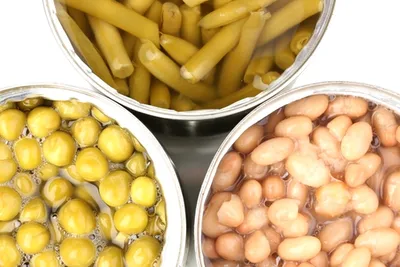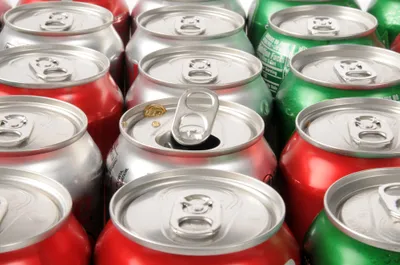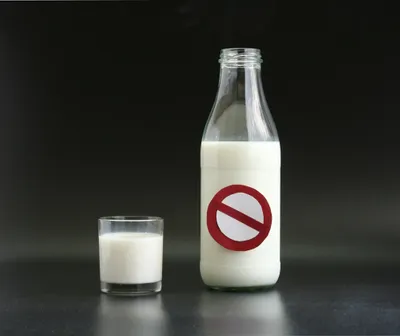We’re so prone to quietly covering up the fact that we pass gas (or blaming it on the dog) that it’s almost humorous to admit that farting is not only simply a fact of life—but a healthy one. So regardless if you let er’ rip, make those noises under your armpit, or are part of the silent yet deadly club, let’s put the jokes aside for just a moment to talk seriously about flatulence…
1. What Makes Us Fart?
Gas is so embarrassing that often, when we hold it in or rush outside for fear of passing gas in front of others—we’re actually making the symptoms of gas worse. According to statistics from the National Institute of Diabetes and Digestive and Kidney Diseases, the average, healthy individual passes gas between 15 and 20-times per day! So yes, your workplace is literally a swirling room of human flatulence right now.
But gas—that means, farting and burping—is meant to relieve abdominal discomfort that’s pent up after too much air enters the gastrointestinal (GI) tract via breathing, eating, or even due to certain foods we eat not agreeing so well with our digestive system and producing excess gas in the colon.
2. What Produces Excess Gas?
We’ve already established that farting, or flatulence, is a healthy part of everyday life. However, several different factors can contribute to excess gas build-up (which is what causes us to fart). Many are normal every day occurrences and others are health concerns. One of the most common sources of this excess air is exterior.
This can refer to air that’s breathed in by excess (i.e., if you laugh, hiccup, chew gum, or inhale too much air when smoking) and gulp down too much air into your interior plumbing. Gas that results from excess swallowed air is typically a mix of hydrogen, carbon dioxide, and nitrogen, commonly sourced from carbonated drinks (i.e., soda). Obviously the more air you take it—the louder (and more embarrassingly) you’ll tend to pass gas.
3. What Causes Flatulence to Smell?
The source of excess air will normally determine if your fart will smell or not. While we’ve established that excess air breathed in (or swallowed) via external sources—like laughing hysterically or drinking soda—is largely a combination of nitrogen, hydrogen, and carbon dioxide—which contain zero odor and likely won’t stink up the place.
However, flatulence that accumulates in the GI tract due to bacteria can seriously clear the room with that telltale rotten egg smell. This is because bacteria that produces gas contains sulfur (hence the stank of rotten eggs).
4. Gas Production From Food
We’ve all heard the funny rhyme, “Beans, beans the magical fruit…the more we eat the more we toot!” While there’s most definitely some truth behind that catchy little ditty. Beans are closely linked to causing gas—so much so that many folks pass the bowl on kidney beans, black beans, navy beans, and even chickpeas, and lentils.
This is because beans and legumes are more difficult for the human digestive system to break down. When slow digestion occurs, the nutrients from the stubborn food pass into the colon and become the byproduct of bacterial digestion, which can smell and be quite painful (i.e., stomach cramps, bloating) to pass.
5. Gas Due to Constipation or Diarrhea
Experiencing gas due to constipation is a literal roadblock inside your gastrointestinal (GI) tract. You’ll usually feel and see the symptoms of gas-related constipation—abdominal pains, stomach bloating, trembling tummy discomfort—before you realize your system is blocked.
Even though constipation can be normal—for instance if you’ve recently introduced more fiber into your diet (i.e., leafy greens, fruits with peels, or whole grain cereal)–it can cause intestinal havoc as fiber moves either too fast (diarrhea) or sluggishly (constipation) on route through the GI system. It will take a bit of time for you body to adjust to your new fibrous addition, but your bowel habits should return to normal within a week to a few days.
6. Gas from Food Additives
Processed foods are never a high point of anyone’s diet. However, highly processed foods that contain additives like artificial sugars (i.e., candy, cereal, juices, sugar-free gum, and soda) can turn your digestive system into a roller coaster wrought with gas and abdominal cramps.
In particular, artificial sweeteners that go by names like mannitol and sorbitol have been linked to excess gas, bloating, and diarrhea in those who typically have little GI distress. According to the US. Food and Drug Administration, both sorbitol and mannitol contain high amounts of hydrogen, which means they have laxative affects when un-absorbed residual sugar gets digested by bacteria in your intestine. This fermentation process that often causes painful gas, abdominal bloating, and loose stools.
7. Gas Due to Food Intolerance
Obviously, many folks are “intolerant” of beans since the magical fruit requires a ton of digestive enzymes to break down. However, other food intolerance can occur when the body lacks certain necessities to break down food. Those who are gluten intolerant can’t break down gluten. While those who are lactose intolerant lack the enzyme required to break down milk sugar.
Like other foods that are difficult to digest (i.e., milk and gluten), if the body lacks proper enzymes for effective digestion, the food will be absorbed in the small intestine (or colon), where bacteria will break it down, causing the telltale stinky, bloated, cramp-ridden, and gassy results.
8. Gas Due to IBS
Aside from sucking in too much air, eating foods that are difficult to digest (i.e., beans), or eating foods that your body can’t digest properly (i.e., in the case of food intolerance)—there are several digestive diseases that cause chronic gas, inflammation, constipation and loose stools, and abdominal pain, which are cause for more serious medical concern.
Irritable bowel syndrome (or IBS) is one such digestive disorder that medical professionals consider when the digestive system is dysfunctional—often when the improper absorption of carbohydrates causes gut bacteria go into hyper-drive or when bacteria simply overgrows in the small intestine (SIBO).
9. Gas Due to Auto-Immune Disease
Smelling gas, bloating, paralyzing abdominal cramps, constipation, bleeding, and diarrhea are no longer normal when caused by an auto-immune disease. Inflammatory bowel disease (IBD not IBS) include Crohn’s Disease and Ulcerative Colitis along different sections of the GI tract. While Celiac Disease (not to be confused with gluten intolerance) causes the immune system to attack the small intestine when even a tiny bit of gluten is consumed.
Although these auto-immune diseases differ greatly—all tend to cause chronic pain, inflammation, foul smelling gas, and improper absorption of food nutrients. Call your doctor immediately if you suspect the presence of an auto-immune disorder. Gas and bloating can also be the result of an intestinal blockage, several types of cancer, and diverticulitis.












